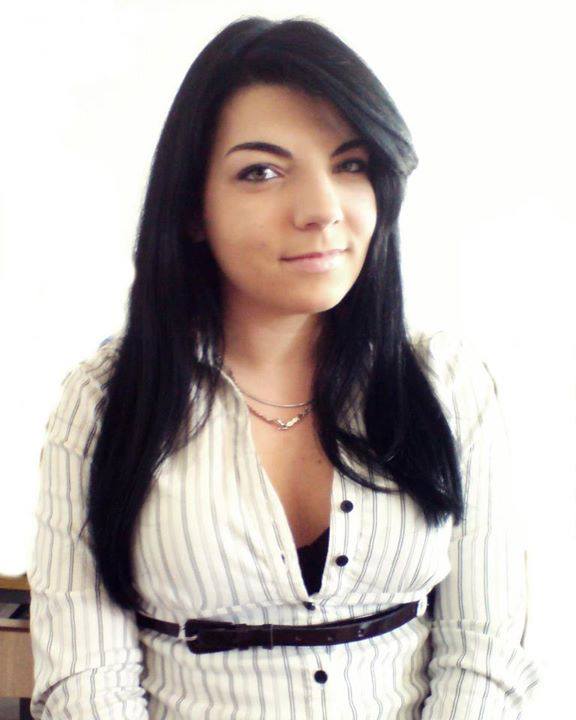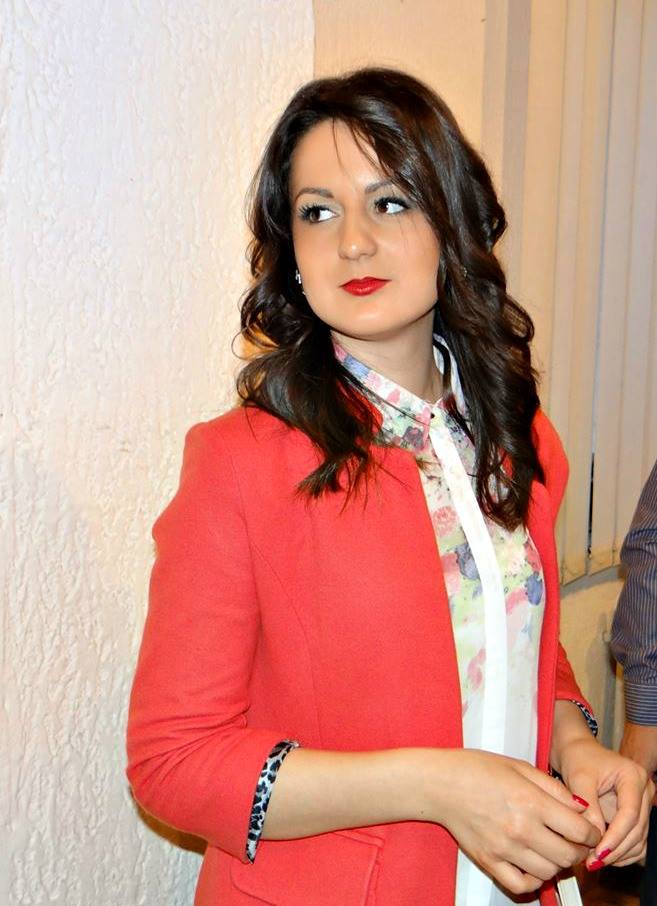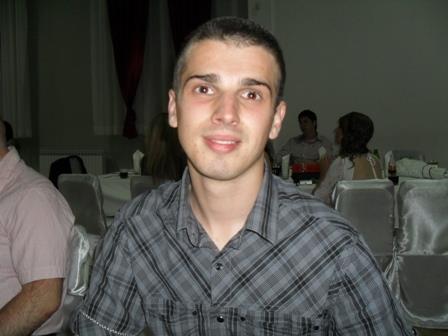
Youth in Bosnia-Herzegovina live together and only an occasional “report” reminds them of how they are ostensibly divided. It is often said that transition is not a process, but a permanent state of society in BiH. Since the end of the war, we have been working on reconciliation.
“I am convinced that our politicians talk about reconciliation on behalf of only one of the conflicting sides and about trust-building only for show,” says Miloš Šarenac, a 25-year-old unemployed, journalism graduate from Eastern Sarajevo. He thinks politicians often create an atmosphere of fear and division, while the reality is totally different. “I have friends and acquaintances of different nationalities and religions, and I am not the only one. It is quite normal to have Miloš, Ante and Muharem hanging out together,” explains Miloš through a smile. “There are topics on which we disagree, different views on the causes of the war and all of that, but I think young people don’t really care too much about these things,” continues Miloš. It is here that he sees the problem. “If we young people remain silent, if we don’t bring up topics like this and instead leave them to the politicians, they will surely use them for scoring some political points, as we have seen.”
Marko Matović, a 22-year-old journalism student from Eastern Sarajevo, has a similar viewpoint. “Conflicts, hatred, and intolerance are still being diffused by the media and by politicians, and it is hard not to fall for it,” says Marko. Working for various non-governmental organizations (NGOs) has given him an opportunity to meet youth from all over BiH, but he says that, up until few years ago, that was an exception to the rule. A large number of youth are simply brought up to stay away from the “other.” Marko remembers meeting young people who had never crossed their administrative or entity borders. “It is not personal hatred that is the problem, it is the environment in which the youth grow up because from an early age we are taught that it’s normal for things to be this way,” adds Marko. He remembers a time when he was in high school and said it was hard to find young people from Sarajevo and Eastern Sarajevo hanging out together. “Today, a generation has emerged that understands that we are all the same. Today it is “normal” to have a girlfriend of different nationality or ethnicity because we simply do not care about these divisions,” says Marko.
What complicates the situation, in Marko’s opinion, are the politicians and the media. “We are being fed the information that we are not welcome in certain parts of the country, but our personal experiences tell us otherwise. So we are being influenced, regardless of which nation we are talking about,” he explains. “It’s the media that keeps bringing up war topics, in a negative and superficial way. My friends and I almost never talk about the war because we are more concerned with the future than we are with the past,” the young man concludes honestly.

Vanja Tešanović, a 21-year-old law student, is living in Eastern Sarajevo in an area often labeled in the media as a “demarcation line”. She thinks political elites are not dealing with reconciliation because she personally has not seen any concrete plans. “Everything related to reconciliation has somehow been transferred to the NGOs whereas politicians are determined to divide us, and that is the biggest issue,” says Vanja. “My friends and I may be the best example that the reconciliation process is, in fact, partially successful and that it really does have an effect on young people,” she proudly emphasizes.
Vanja says how she and her friends often joke about the imaginary borders that divide them and this, she believes, shows that the youth are looking toward the future. “One should keep in mind, however, that there are those who still feel hatred towards others even though they did not personally experience the war. But it is not their fault, it is their surroundings, parents, and teachers…” says Vanja. She remembers a situation when a bar fight in Eastern Sarajevo was reported in the media as an interethnic clash. “I could not believe what I was reading because I was there and I know ethnicity was not the reason for the fight. People from other places, especially more rural areas, will most likely believe this report and will think that they should be afraid when they come here, which is crazy,” says Tešanović.
Vanja says that she cannot give a concrete answer regarding how others feel about relationships between members of different ethnicities, nations, or religions. “It is hard to generalize, but it seems to me that there are more and more young people who do not have problems with such things. It seems as though the older generations are the ones more likely to have a problem with this, but that has just been my personal experience,” Vanja says candidly. “Talk of war was more frequent a few years ago when we started befriending each other, so to speak. It was something we had to get out of the way in order to understand that we actually have some similar viewpoints and, thus, can work together,” adds Vanja. Referring to the issue that politicians and professors should deal with these subjects in a serious manner, she explains, “On the personal level it’s easy, but we as a society need truths and clear interpretations of certain events, and that is a difficult process that should be taken seriously.”

“For us transition is not a process, it’s an excuse for negativity and laziness,” begins Ivana Lučić who is a 23-year-old student studying at the Faculty of Architecture in Sarajevo despite the fact that politicians have said that Serbs are in danger in this city. “You must work with young people to make them realize how insane those divisions are. I think it’s too late for older generations, but it’s not too late for mine, and I believe we are on the path towards change,” explains Ivana. She is aware that there are many people who avoid contact with the “other” and there are a number of topics sensitive to the public that can easily create an avalanche of hatred. “It seems to me like the media are devoting too much time covering topics where someone hates someone else, so we get this impression of deep division, when this isn’t a reality in everyday life,” says Ivana.
Like Vanja, Ivana mentions the example of the “interethnic conflict” that was in fact just a plain old bar fight. “We laughed at that because we knew what the truth was, but it is scary how the media abuse such stories. Instead of writing about the issue of violence, they lie and present someone’s religion or nationality as the primary issue,” says Ivana.
“When you see how ordinary people live, you begin to realize that we are persistently being lied to by politicians and the media alike,” explains 27-year-old Vedrana Knežević from Eastern Sarajevo when asked about the divisions within society. “I often read how we can’t live together and then, in the evening, I go out with Serbs, Croats and Bosniaks,” she points out. “Of course things aren’t all rosy regarding the war, as every nation has their own interpretation of it, but we rarely talk about that among our friends,” Vedrana continues. “I don’t think we to reflect on the past all the time when our future is still so uncertain.” Vedrana agrees with Ivana as they both emphasize that if there was more work and security in the existential sense there would not be so many pointless arguments about a war that got us nowhere.

Slobodan Todorović, 26 and unemployed from Eastern Sarajevo, thinks war is not something we should be silent about, but he also thinks we should not talk about it all the time. He thinks politicians talk about the war only because they do not know what else to talk about. “The situation in the country is really bad. It’s almost impossible to find a job and then here comes a politician talking about the war and how people are in danger so as to mask the real problem,” says Slobodan. Like the previous interviewees, Slobodan does not see the divisions among the youth that headline so many stories. “When we go out we want to have a good time. We don’t care about someone’s nationality,” he adds, also reiterating that it is not like that everywhere. “I know that there are people who don’t associate with Serbs. Some people have never even met a Serb,” says Slobodan. He believes that this is not the result of personal fear or hatred, but is instead a consequence of the current system. “If they will separate us from childhood, we can either fight the division on our own or simply accept what we are taught,” he concludes.
All of these young people agree on one thing: real life is not what you see in media nor hear in political speeches. “It is clear that it will take a lot of time to reach a consensus on a truth about the war, but the easiest way to do this is together, dealing with the economy and employment, and not by blowing hot air,” Slobodan states.






